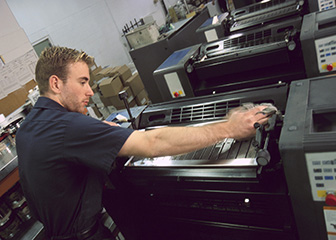Summary

| Quick Facts: Industrial Machinery Mechanics and Maintenance Workers | |
|---|---|
|
$44,160 per year
$21.23 per hour |
|
| High school diploma or equivalent | |
| None | |
| See How to Become One | |
| 357,000 | |
| 19% (About as fast as average) | |
| 66,400 | |
What Industrial Machinery Mechanics and Maintenance Workers Do
Industrial machinery mechanics and maintenance workers maintain and repair factory equipment and other industrial machinery, such as conveying systems, production machinery, and packaging equipment.
Work Environment
Workers must follow safety precautions and use protective equipment, such as hardhats, safety glasses, and hearing protectors. Most mechanics work full time. However, they may be on call or assigned to work nights or weekends. Overtime is common.
How to Become an Industrial Machinery Mechanics and Maintenance Worker
Both industrial machinery mechanics and machinery maintenance workers typically need a high school diploma. However, industrial machinery mechanics need a year or more of training after high school, whereas machinery maintenance workers typically receive on-the-job training that lasts a few months to a year.
Pay
In May 2010, median annual wages for industrial machinery mechanics were $45,420, and median annual wages for machinery maintenance workers were $38,460.
Job Outlook
Employment of industrial machinery mechanics and maintenance workers is expected to grow 19 percent from 2010 to 2020, about as fast as the average for all occupations. Increased use of manufacturing machinery will require more mechanics and maintenance workers to keep the machines in good working order. Applicants with broad skills should have favorable job prospects.
Similar Occupations
Compare the job duties, education, job growth, and pay of industrial machinery mechanics and maintenance workers with similar occupations.
O*NET
O*NET provides comprehensive information on key characteristics of workers and occupations.
Contacts for More Information
Learn more about industrial machinery mechanics and maintenance workers by contacting these additional resources.










